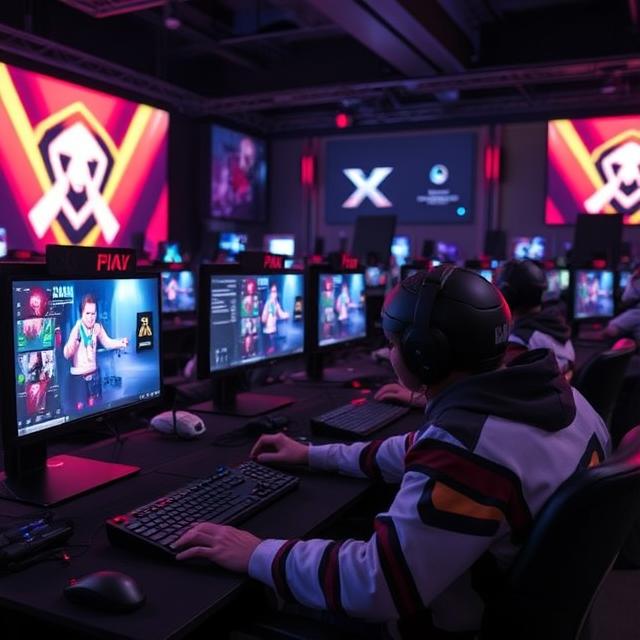Why Esports Are Blending Into US and European Traditions

Esports Rising Alongside Cultural Staples
Esports, previously a subculture, increasingly is becoming a mainstream global phenomenon. Competitive gaming in recent years has not only become a spectator sport with the appropriate following to back it up, it has begun to cross-pollinate with traditional sports in America and traditional European sports. From NBA franchises owning esports teams to European football clubs opening virtual wings, the blurring of physical and virtual sport is impossible to ignore. This mix signifies the beginning of a new age where competitive entertainment has crossed format, culture, and geography.
Crossover Between Teams and Fanbases
Major organizations in traditional sports in America, such as the NFL and NBA are making large investments into esports operations. For instance, most NBA teams have stakes in leagues such as the NBA 2K League or have partnered with international gaming companies. The cross-over enables them to reach younger customers who are more likely to stream Twitch games than watch TV broadcasts.
Likewise, within Europe, the footballing legends Paris Saint-Germain, FC Schalke 04, and Manchester City, both of which are conventional European sports, all have esports divisions. They use their international follower bases to achieve esports credibility, forming new virtual connections which uphold brand worthiness among young people.
Esports Are Adapting to Regional Values
The integration of esports into conventional sports in America is enabled by the alignment of their values with American competitive, individual, and technological values. Esports leagues now have the same format as traditional leagues with set seasons, sponsorships, and player drafts. Collegiate programs for esports are also flourishing, following NCAA models, and giving gaming a legitimacy as a professional career opportunity.
In Europe, integration from traditional European sports is being seen with the way esports tournaments borrow the heritage of the legacy sports, chants, and fan culture. Major tournaments, particularly for crowns like FIFA and League of Legends, are no different from legacy football games with massive fan parks, live commentary, and club derbies. The cultural integration is finding esports more familiar and a part of sporting heritage.
Shared Infrastructure and Sponsorship Models
Esports is also capitalizing on the infrastructure that has been accumulated for conventional America sports, including arenas, broadcast networks, and media rights models. All of these are now applied to live esports events, taking virtual sports to physical locations. Brands that have traditionally sponsored football, baseball, and basketball are sponsoring esports tournaments, seeing the increasing economic value and brand affection.
Same pattern is observed throughout traditional European sports. Sports stadiums such as the O2 Arena in London or the Accor Hotels Arena in Paris hold esports championships in them on a regular basis. Telcos and drinks businesses throughout Europe, long-standing partners of football and rugby, are now transferring their brand to the realm of esports. Marketing discourse and marketing efforts tend to run in parallel, evidence of an interconnected sports branding plan across mediums.

Why Esports Are Blending Into US and European Traditions
Cultural Acceptance and Normalization
Esports are no longer culturally perceived as beyond the pale of actual sport. Industry commentators and analysts now regularly mention esports when they speak of traditional sports in America, detailing mental endurance, squad coordination, and fan engagement as areas of similarity. Gaming as an elite activity is normalized by increasing media coverage, crossover athletic involvement, and high-school level activity.
This trend is reflected also in the way traditional European sports have welcomed esports. Footballing idols are up on the box regularly broadcasting matches or making appearances at gaming conventions, blurring the line between physical and virtual sport. To this, several European countries are currently weighing up proper legislation and government endorsement for esports as part of their sporting cultural portfolio.
The Future of Blended Sporting Identity
What was two separate worlds, real sports and computer games blended together. The transformation of esports into fields once dominated by traditional sports in America and conventional European sports is a result of shifting competition and entertainment definitions. With the next generation being raised with controllers as natural extensions of their bodies and institutions beginning to see the longevity of esports, the blend will be continuous, redefining what we understand about tradition within sport.
Esports are merging with traditional sports in America and traditional European sports, reshaping the meaning of tradition in global competition.
How VR Aids Specialists Athlete Rehabilitation Physical Therapy
